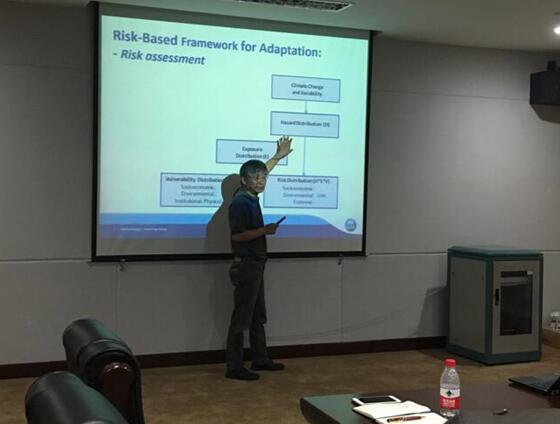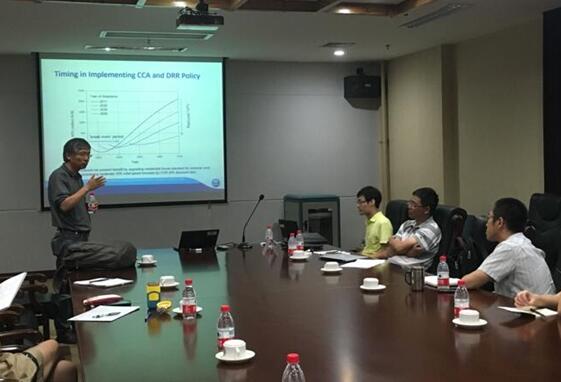On June 24st, invited by Urban Ecological Process and Control Group of IUE, CAS, Professor Xiaoming Wang of Commonwealth Scientific and Industrial Research Organisation (CSIRO) of Australia visited IUE and made a academic report titled “Development of ‘Profitable’ Climate Adaptation for Built Assets”. The report was hosted by Researcher Shenghui Cui. In the report, Professor Wang firstly introduced in detail five main procedure of government policy making, following showed the graphics of the path selection of climate risk assessment, and then gave three detailed case describing how to assess the risk of building assets adapting to climate variability. In the meeting, Professor Wang had in-depth communication with teachers and students listening to the lecture. The atmosphere at the spot kept high and warm. Researcher Cui reached consensus with Professor Wang on in-depth cooperation content of the key foreign cooperation project of Bureau of International Co-operation Chinese Academy of Sciences, CAS-CSIRO project and advanced practically and effectively further cooperation and research.
Introduction of the expert:
Dr Xiaoming Wang is a Senior Principle Scientist in Climate Adaptation and Sustainable Development at the Land and Water Flagship, and had taken a senior management role as a theme leader of the Sustainable Cities and Coasts, National Climate Adaptation Flagship, Commonwealth Scientific and Industrial Research Organisation (CSIRO). He is adjunct professor with the School of Engineering in Monash University, and the Faculty of Science, Engineering and Technology in Swinburne University of Technology, Australia. He has published well more than 250 journal and conference papers, book chapters, and technical reports. He has extensive experiences working on climate impact and adaptation related projects of national significance. He was a contributing author to the Australasia chapter in IPCC AR5, a leading/contributing author of the 2nd Assessment Report of Climate Change and Cities (ARC3-2). He is highly skilled in multi- and inter-disciplinary research covering material science, mechanical and civil engineering, urban environment and sustainability, public health, natural disaster risk management, and climate adaptation.

